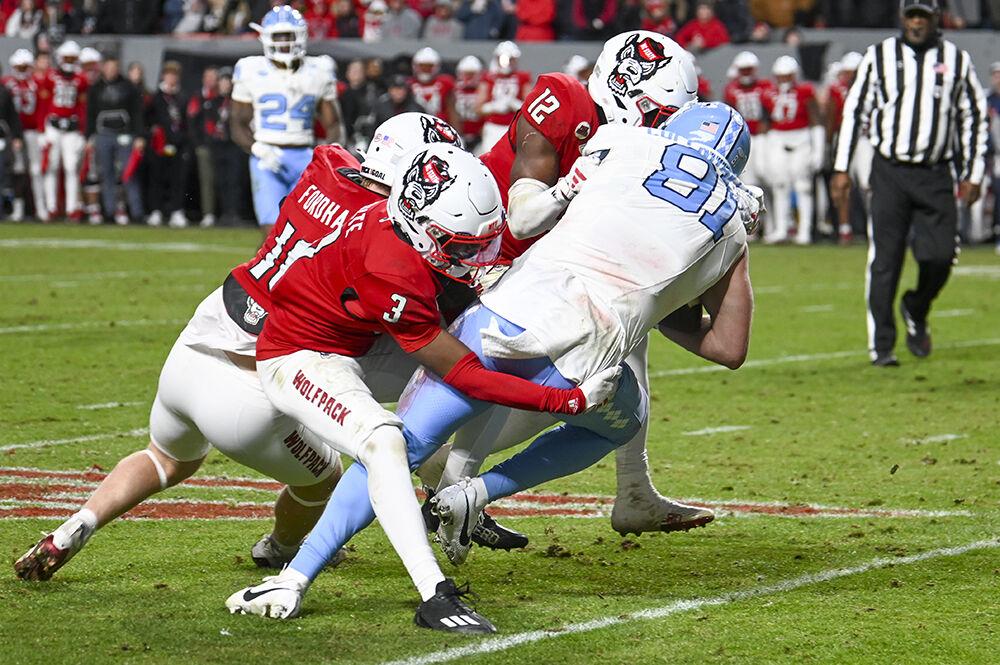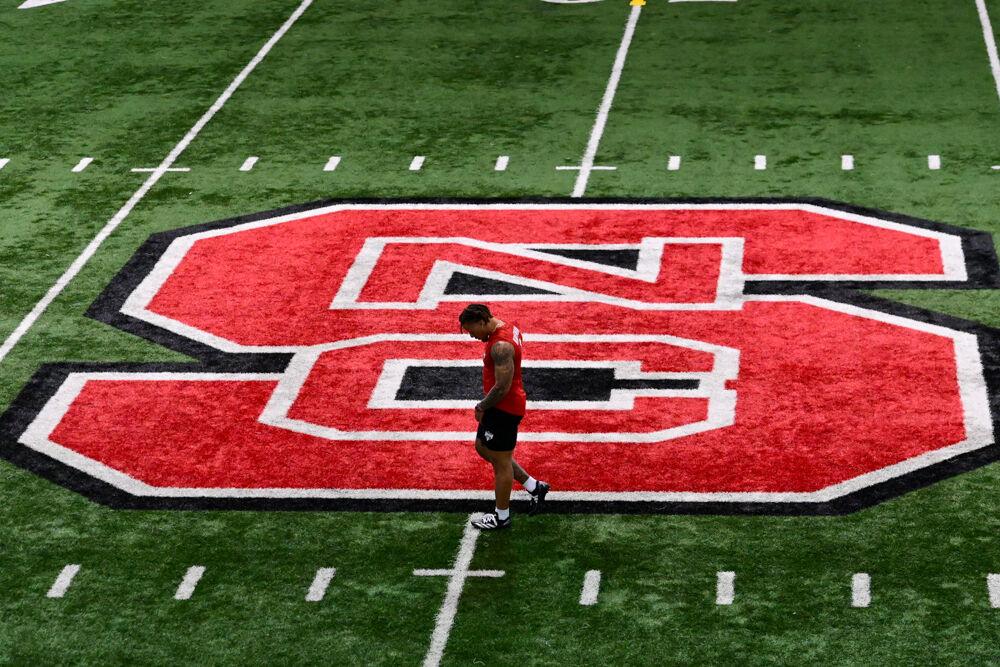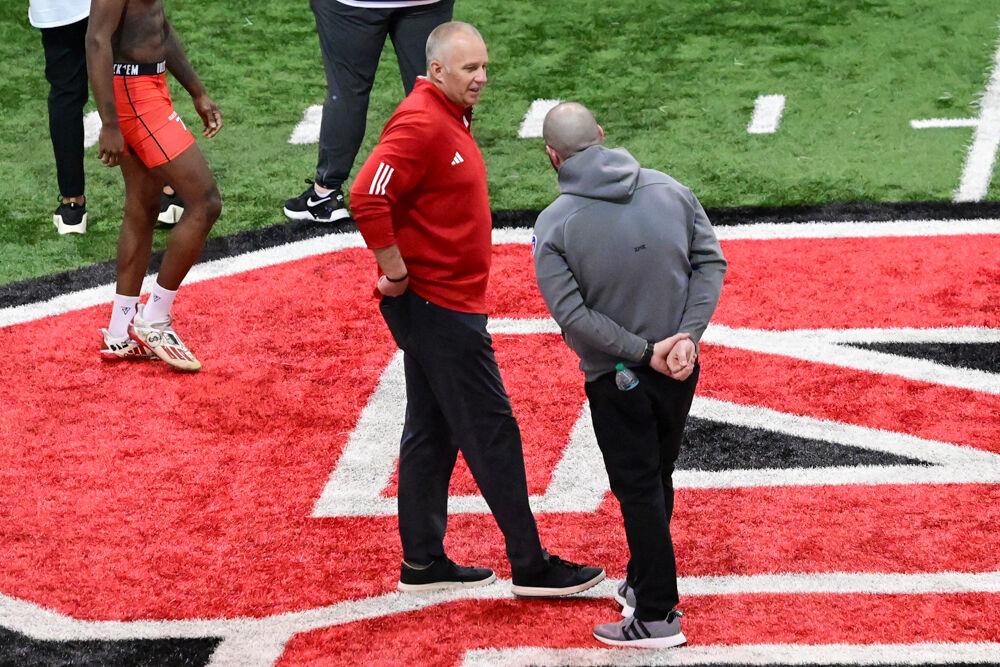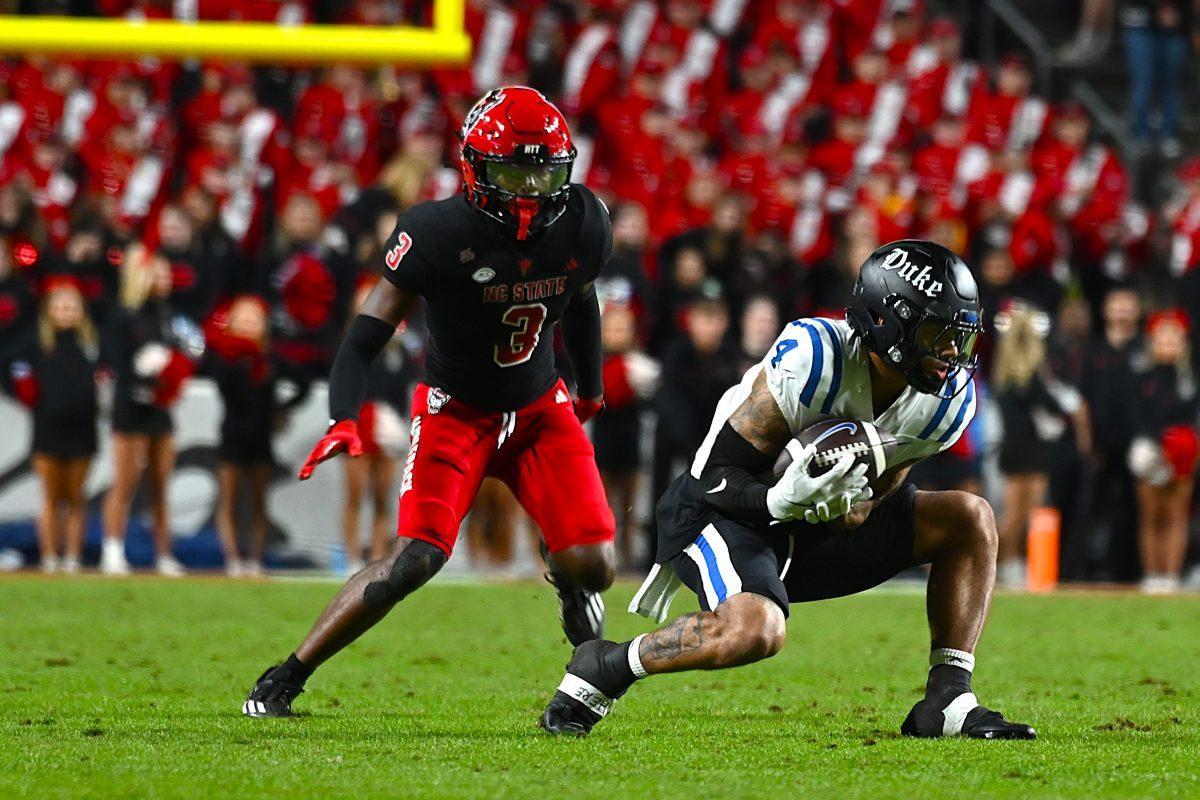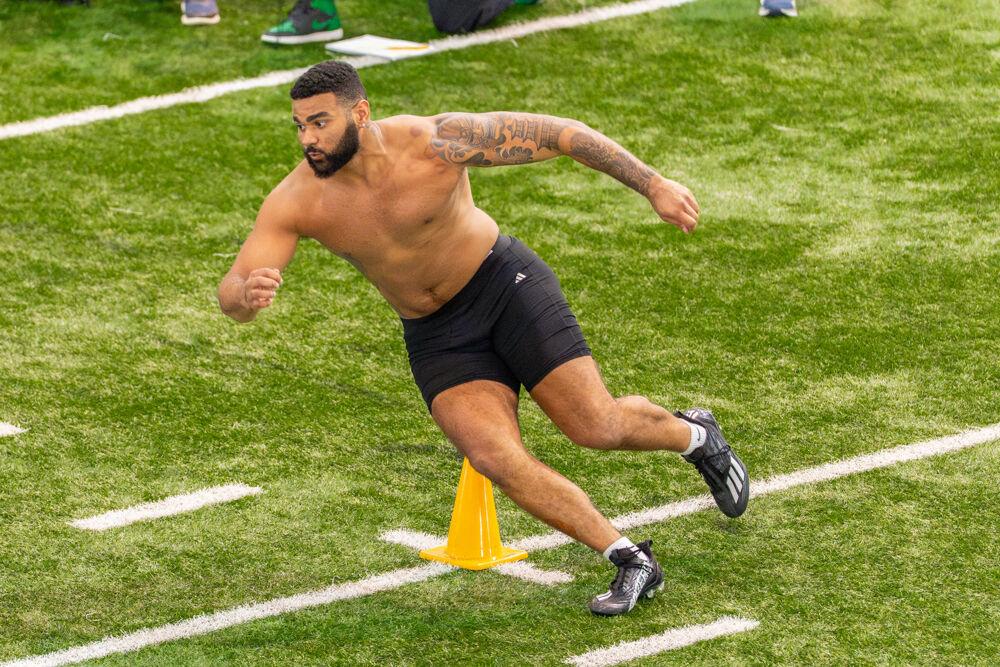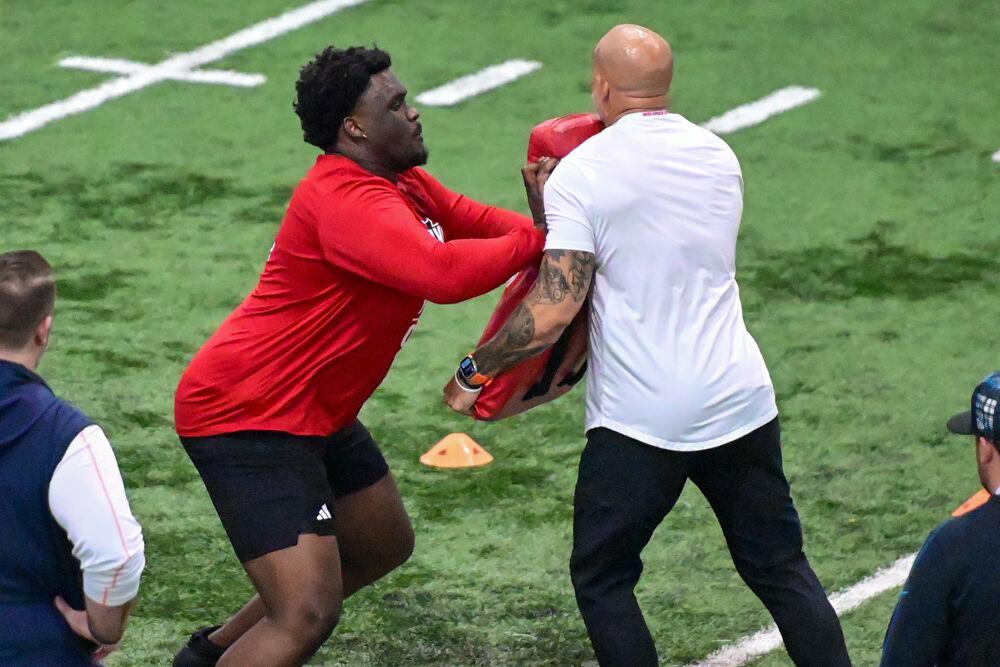NIL and the transfer portal have made it hard for college football programs around the country to stay competitive and establish an identity. Despite all the moving parts within the NC State football program, one thing has managed to stay consistent the entire time: the red-and-white’s defense.
Defensive coordinator Tony Gibson has led the way in establishing the Wolfpack not just as one of the best defenses in the ACC, but in the entire country. For the last few years, the Pack has hung its hat on the defensive side of the ball, and this year was no different.
With the regular season over, let’s take a look at some stats that show how dominant the NC State defense was this season.
16.9 points allowed per game in ACC games
Gibson’s unit started the season off slow, allowing 45 points to Notre Dame and 41 to Marshall, but once conference play began, it was a different story. The 16.9 points allowed per game is the best mark in the conference. The defense accomplished this with its stifling run defense, ranking first in conference games in rush yards allowed per game.
If Gibson could make his opponents one-dimensional, it was game, set, match for the other team. The inability to manufacture a run game against NC State is a recipe for disaster because it allows the pass rushers to tee off on the quarterback and gives more opportunities for the ball-hawking secondary to create turnovers.
There is no better example of this than what happened against Wake Forest. The Demon Deacons managed just seven yards on the ground for an abysmal 0.4 yards per carry. The lack of a run game helped the Pack rack up three sacks and an interception. In NC State’s upset win over Clemson, the stout run defense also forced Clemson quarterback Cade Klubnik into a season-high 50 pass attempts.
Once the Wolfpack defensive line and linebackers established they were going to win in the trenches, it was going to be hard for any team to score on NC State. Allowing just under 17 points per game in ACC games proves the Pack won the battle upfront most of the time.
3rd nationally in interceptions
When the defensive line is making it impossible for the other team to run, it gives opportunities for the secondary to make plays. The 17 interceptions the Pack have is the third-most in the entire country. Eight different players recorded an interception, with graduate linebacker Payton Wilson and junior safety Devan Boykin leading the team with three apiece.
This is nothing new for the Pack’s defense; it has led the ACC in interceptions the past two seasons. Gibson’s system is set up for his defenders to play freely, allowing them to make plays on the ball that turn the tide of the game.
It was more important than ever this season for the defense to get interceptions as the offense struggled to find its rhythm for most of the season. The interceptions gave the offense favorable field positions, and twice this season, the defense did the offense’s job, returning two for touchdowns.
27.7% opponent third down conversion rate
Whenever coaches are asked before the game what they need to do to win, they almost always mention getting stops on third down. Gibson must be preaching that same message because the 27.7% opponent conversion rate ranked fifth in the country.
There is nothing more disheartening for an offense than continually getting stopped on third down. The inability to keep the chains moving snatches any of the momentum the offense had and hands right it to the defense.
In the Pack’s final game against UNC-Chapel Hill, it stopped the Tar Heels on their first five third downs, and by the time they converted their first third down, the score was 33-7 in favor of the Wolfpack. Not only do third down stops give the defense momentum, but if the offense is rolling like it was against the Tar Heels, it gives that side of the ball a chance to run up the score.
There might not be another team in the country that takes more pride in getting a stop on third down than Gibson’s squad. When his unit forces the offense to punt, everyone on the field and sideline celebrates because they know the team on the opposing side is defeated.


